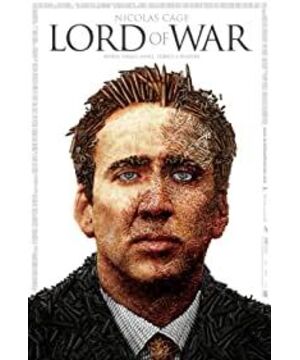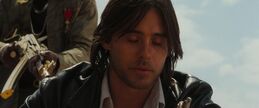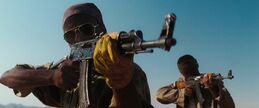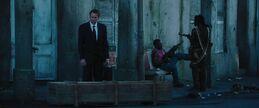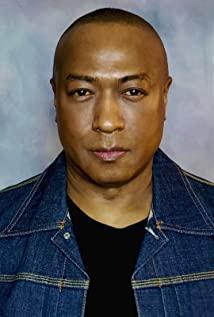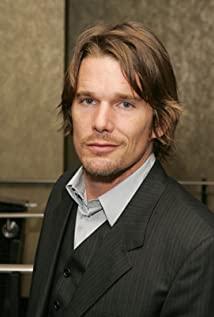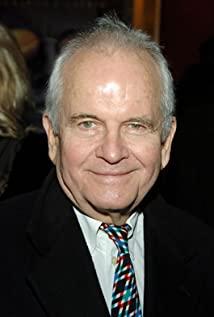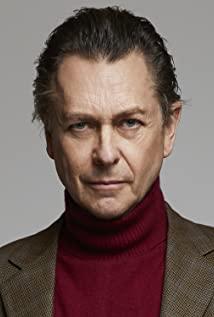How wrong are dictators, armed fronts, extremist religious forces? Are intelligence agencies, senior military officials, government officials at fault? Are poverty, famine, lack of education and social unrest also a fault? A film may not be able to answer so many questions, nor can it dig out such complex socio-historical geopolitical reasons. But what makes me dissatisfied is that the film replaces any of the above digging and exploration with a brutal moral judgment.
The first is to persuade:
If you are a military fan, military enthusiast or have a little understanding of arms sales, international politics, etc., this film is not for you.
Although it is a classic old film, it still cannot be logically self-consistent on the topic of arms trade, so there are many places where the plot is too blunt. In addition, the film was shot relatively early, and the plot setting is a bit too rough from the current point of view.
As for why this film is rated so high, (I guess) part of it is because of the charisma of the protagonist. The main reason is that the films of this genre are too sensitive and the number is extremely rare. For those who don't know anything about this industry, this film has the effect of "opening your eyes to see the world". The words that must be said are, "There are no heroes at all times, so Shuzi becomes famous".
In the film, a boy with an ordinary background, that is, the protagonist, entered the arms industry and grew rapidly. By bribing officials, collecting intelligence, and establishing a network of relationships, the sale of arms in various countries has become more and more popular. However, he couldn't deal with an Interpol (?) squad leader, who was targeted by the squad several times and almost sent him to prison. Even the business of buying and selling drugs and counterfeit drugs, which is "incomparable" compared to arms, knows that he can kill the team leader or let the big man behind him "protect the umbrella". But the protagonist has always been a just and law-abiding arms dealer. Even if he does illegal business, the moral water bottle cannot be thrown away. So he didn't want to think of a way to deal with it, and was forced by this team leader to jump around and do business. Of course, the protagonist also dared to be self-confident and self-improvement. He threw the important documents directly through the shredder and threw them into the trash can. I didn't expect the team leader to find them. It was really cruel to the honest protagonist.
The protagonist was also pointed at guns countless times, walking on the edge of life and death. After all, it is a high-risk industry, and it is also dealing with dictators, members of armed groups, criminals, terrorists, etc., so there will definitely be extremely high risks. But the protagonist doesn't care, he personally does not have bodyguards, and he is alone to discuss the next big business. Even if someone was on the car, almost beaten to death by a drug dealer, or went deep into the fighting scene, the mountain collapsed and his face remained unchanged. In fact, this is nothing, the protagonist sits in the underground arms kingdom, and puts all his fake identity and equipment information in a small warehouse under a bridge pier. Such a frugal billionaire is rare in the world. Ergouzi, who made a fortune as a developer in the village, also paid for two veterans.
The sale of arms caused many people to be injured and killed, and many people were displaced and their homes were destroyed. The Libyan dictator I and II didn't look normal, so I can't blame a lunatic. Those manufacturers of arms, who want to eat, how can they blame the people who produce, there is no harm if there is no business. There are also other arms dealers. Although countless arms dealers stand up once the protagonist falls, who cares after that, now it's better to blame the protagonist. What child army, what country is divided, what poverty and famine, what war and peace, all the protagonists sell arms.
This movie is really a bit reluctant to call the king of war, and this king seems to be too low-worthy. It is suggested that this movie can be renamed, such as "I am a super arms dealer who earns hundreds of millions of dollars a year but I never hire bodyguards", "All big countries sell arms but the world is not peaceful or it is up to me" or "The honest and trustworthy arms dealer" I live in New York with equipment on the pier and wait for you to catch me."
Of course, the protagonist is not just a salted fish selling arms. The protagonist is also an arms dealer with dreams. The protagonist finally married the goddess through promotion and salary increase. Through the guidance of the team leader, the goddess realized that what the protagonist did was wrong. Although the protagonist's money was well spent, the protagonist was responsible for the war and conflict, the division of nations, ethnic conflicts and religious disputes, and of course for the goddess who did not know how to die. Parents are responsible. The international police searched for so long and did not find the secret of the protagonist. The goddess and her lovely son discovered the secret pier of the protagonist at once. The goddess finally left the protagonist with her son because she felt that the protagonist did something wrong. But why don't you know, anyway, the arms sellers must be bad people, not to mention that everyone knows.
The only thing that makes the whole movie stand out is the reverse at the end.
But I still feel that this reversal is not strong enough. What particularly left me speechless was the didactic nature of the entire film. Everyone agrees that selling arms is wrong. The protagonist's younger brother had been self-doubting until he finally came to his senses. The protagonist's family ignored him, and the protagonist's wife finally chose to leave him. And the police who have been playing soy sauce in the film are also upholding justice by bringing down the protagonist.
But what the film doesn't tell us is why it's wrong, how "wrong" it is, and how much responsibility the protagonist should take.
Several arms-trafficking powers occupy the vast majority of the global market share. Should they bear the vast majority of the fault? Should those militants who lack the ability to defend themselves, who cannot buy arms under the manipulation and blockade of those great powers, have the right to possess weapons, or should they not possess such deadly weapons? How much fault and how much responsibility do those dictators, separatists, armed fronts, and extremist religious forces bear? If the local population supports, supports and actively participates in the rebels, ethnic armed forces or the dictator's army, who should pay for the harm done? Are the perpetrators to blame for the still-killing civilians, or the protagonist who provided the weapons? Is the poverty and famine in those lands, lack of education, and social unrest also a fault? Is it the fault of the organizers, the users, or the weapons providers who have been trained to kill demons before they reach adulthood? And are those intelligence agencies, senior military officials, government officials, and UN agency personnel who cover the protagonist an inescapable part of all culpability?
After all, one thing is certain, "Guns don't kill people, people kill people".
A film may not be able to answer so many questions, nor can it dig out such complex socio-historical geopolitical reasons. But what makes me dissatisfied is that the film replaces any digging and exploration in the above sense with a brutal moral judgment.
View more about Lord of War reviews


